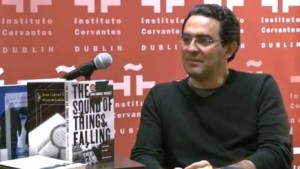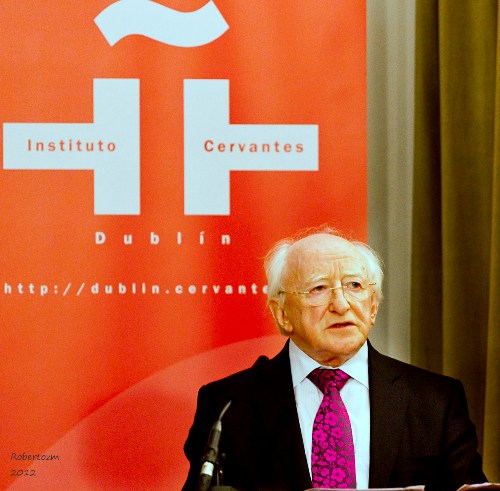Blog del Instituto Cervantes de Dublín
Torre Martello
Nuevo horario de biblioteca / New library opening hours
 Debido a circunstancias imprevistas, nos hemos visto obligados a cambiar el horario de biblioteca.
Debido a circunstancias imprevistas, nos hemos visto obligados a cambiar el horario de biblioteca.
Con este nuevo horario, intentamos adaptarnos de la mejor forma posible a vuestra demanda, teniendo en cuenta los recursos de los que disponemos.
En todo caso, la biblioteca seguirá teniendo un amplio horario de apertura, de lunes a sábado. También tenéis a vuestra disposición, las 24 horas, los siete días de la semana, nuestros servicios en línea: diccionarios y bases de datos, audiolibros, y libros electrónicos.
El horario queda como sigue:
Lunes a jueves: 11.30h a 18.30h
Viernes y sábado: 9.30h a 14.00h
¡Nos vemos en la biblioteca!
Due to unforeseen circumstances, our library opening hours are changing from today until further notice:
Monday to Thursday: 11:30am-6.30pm
Friday and Saturday: 9.30am-2pm
We are sorry for any inconvenience caused. Please remember that all our members have access, 24 hours a day, 7 days a week to our online services, such as: online dictionaries and data bases, audiobooks and electronic books.
See you in the library!
Exposición: Arpilleras poéticas | Exhibition: Poetic Arpilleras
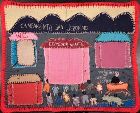 Mañana, día 22, inauguramos nueva exposición gracias a la colaboración de la Embajada de Chile en Irlanda y la Dirección de Asuntos Culturales del Ministerio de Relaciones Exteriores de Chile, los verdaderos motores de esta iniciativa.
Mañana, día 22, inauguramos nueva exposición gracias a la colaboración de la Embajada de Chile en Irlanda y la Dirección de Asuntos Culturales del Ministerio de Relaciones Exteriores de Chile, los verdaderos motores de esta iniciativa.
Arpilleras Poéticas comisariada por la académica y curadora chilena residente en Irlanda del Norte, Roberta Bacic, reúne alrededor de 30 arpilleras chilenas (técnica consistente en la utilización de piezas textiles gruesas y ásperas sobre cuya superficie se realizan trabajos de artesanía y bordado) de diversos tamaños que relatan la historia, la sociedad y la cultura del Chile reciente.
Roberta Bacic a lo largo de los años ha reunido una gran colección de dichas valiosas piezas, dedicándose desde comienzos del año 2000 a su recuperación, conservación y estudio. Ha expuesto a partir del 2008 en Nueva York, Hamburgo, Sao Paulo, Belfast, Barcelona, Berlín, Osaka, Kingston, Londres entre otras muchas ciudades y ahora en Dublín el público tendrá la oportunidad de disfrutar de este arte textil chileno que habla de las vicisitudes del hombre y la memoria.
Puedes visitar la exposición durante el siguiente horario:
Lunes a jueves: 2-7pm. Sábados: 10am a 2pm. Cerrados los viernes, domingos y Bank holidays.
From November 22th to December 15th, the Cervantes Institute, the Embassy of Chile in Ireland and the Cultural Affairs Committee of the Ministry of Foreign Affairs of Chile have the honour to invite you and your family to enjoy the Poetic Arpilleras exhibition of the Chilean academic and curator resident in Northern Ireland, Roberta Bacic. The exhibition will open at 6pm on November 22nd with the curator Roberta Bacic and a poetry recital by Chilean poet Jaime Huenún.
The exhibition “Poetic Arpilleras” gathers around 30 Chilean “arpilleras” (the technique consists scraps of materials hand sewn and appliqued onto burlap. Often arpillera dolls are used to add the three dimensional perspective. Wool is used to sew around the piece, either with a needle or crochet, to give it the shape of a picture to be hung on a wall) of various sizes. These tell about the history, society and culture of contemporary Chile.
Roberta Bacic has gathered throughout many years a vast collection of these valuable pieces devoting time to acquire, recover, conserve and study them since the early 2000’s. She has exhibited from 2008 in New York, Hamburg, Sao Paulo, Belfast, Barcelona, Berlin, Osaka, Kingston and London among many other cities. Now in Dublin, the general public will have the opportunity to enjoy this Chilean textile art which tells the story of human experience and memory.
The exhibition is open during these times:
Mon-Thurs.: 2-7 pm. Sat: 10 am-2 pm h.
Closed Frid., Sun. and Bank holidays
La biblioteca propone: Cine y literatura de terror / The library suggests: Horror film and literature
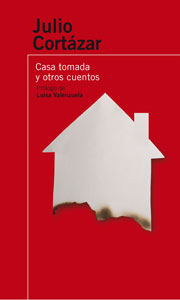 Ya pasaron los sustos de Halloween, pero antes de que llegue la Navidad, el mes de noviembre es ideal para acercarse al género de terror en el cine y en la literatura, un género que gana más adeptos cada día. Ese es precisamente nuestro tema destacado del mes.
Ya pasaron los sustos de Halloween, pero antes de que llegue la Navidad, el mes de noviembre es ideal para acercarse al género de terror en el cine y en la literatura, un género que gana más adeptos cada día. Ese es precisamente nuestro tema destacado del mes.
Considerado con frecuencia un género menor tanto en la literatura como en el cine, el género de terror, que también cuenta con obras maestras, nos ha hecho disfrutar a todos del placer del miedo. Acércate a nuestra biblioteca y descubre por qué.
For this month, the library suggests a selection of horror books and films. Horror genre is often considered a minor subject in literature and cinema. As we have just survived Halloween and once again we were scared to death, we would like to vindicate the quality of many of the books and movies specially created to be enjoyed while we are frightened.
In fact, and opposite to what happens in other sub-genres as Science Fiction or Fantastic Literarure, where we can find writers focussed on writing exclusively this kind of books, the horror genre has always attracted a wide variety of writers who have made punctual contributions to the genre, especially with short-stories.
Novedades en la biblioteca: noviembre 2012 / New to the library: November 2012
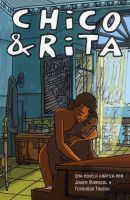 Las novedades de la biblioteca pueden ser consultadas en nuestro catálogo en línea, como es habitual.
Las novedades de la biblioteca pueden ser consultadas en nuestro catálogo en línea, como es habitual.
Para ello, seleccione ÚLTIMAS ADQUISICIONES y elija el período de tiempo que le interesa: ”el último mes” o “los últimos tres meses”.
Ésta es nuestra selección para los meses de noviembre de 2012.
The lastest additions to the library catalogue can be consulted on line as usual.
Click ÚLTIMAS ADQUISICIONES and choose the time period: “el último mes” or “los tres últimos
meses”.
This is our selection for November 2012.
Audiolibro de la semana | Audiobook of the Week: Y no vuelvas más por aquí
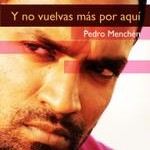 Nuestra recomendación de la semana es el audiolibro Y no vuelvas más por aquí de Pedro Menchén. Si deseas descargarte esta historia, tan solo necesitas tener a mano tu tarjeta de la biblioteca y hacer click aquí.
Nuestra recomendación de la semana es el audiolibro Y no vuelvas más por aquí de Pedro Menchén. Si deseas descargarte esta historia, tan solo necesitas tener a mano tu tarjeta de la biblioteca y hacer click aquí.
Se trata de un entretenido y original thriller con dos personajes atípicos: un joven gay y un sicario colombiano, reunidos por azar y obligados a enfrentarse a sus propios demonios internos. El joven no puede evitar sentir atracción por el sicario a pesar de los miedos que le provoca. El joven se lanzará de lleno a una aventura de la que no conoce el final sólo por el placer de estar cerca de su amante. El cuerpo se lo pide. No te la pierdas. Esta novela negra te captura en su red desde la primera página.
Our recommendation for this week is the audiobook Y no vuelvas más por aquí by Pedro Menchén. If you wish to download this story, you only need to get your library card and make click here.
This is an entertaining and original thriller about two atypical characters: a young homosexual and a Colombian hit man who meet by chance and are obliged to face their own internal demons. The young man can´t avoid feeling attracted to the hit man despite also feeling scared of him. The young one will embark on an uncertain adventure only for the pleasure of being close to his lover. That´s what his body wants. Do no miss it. This black novel will engage you from the very first page.
Coloquio: Café-teatro científico en torno al cerebro | Discussion: Science café about the Brain
 Coincidiendo con la Semana de la Ciencia 2012, el Instituto Cervantes te trae una charla divulgativa en formato de café-teatro, que puedes disfrutar hoy a las 18:00 horas en el Café Literario. No olvides hacer tu reserva en reservas.dublin@cervantes.es
Coincidiendo con la Semana de la Ciencia 2012, el Instituto Cervantes te trae una charla divulgativa en formato de café-teatro, que puedes disfrutar hoy a las 18:00 horas en el Café Literario. No olvides hacer tu reserva en reservas.dublin@cervantes.es
¿Qué provoca las ilusiones visuales? ¿Por qué sufrimos pérdida de memoria? ¿Qué función tienen las neuronas? Si sientes un gran interés por el funcionamiento de nuestra mente y te gustaría aprender cosas en un tono desenfadado pero riguroso, no dejes pasar la oportunidad y asiste a esta charla llevada a cabo por un científico (Casto Rivadulla) y un actor (Vicente de Souza).
Disfruta de una bebida gratuita mientras asistes a la actividad.
During Science Week 2012, Instituto Cervantes brings you an informal and informative talk. You can enjoy it today at 6pm at Cafe Literario. Don´t forget make your reservation in reservas.dublin@cervantes.es
What creates visual illusions? Why do we suffer from memory loss? What is the function of neurons? If you are interested on how our mind works and you would like to learn more about it in an informal but accurate fashion, don’t miss this opportunity and come along to this talk hosted by a scientist and an actor.
Have a free drink while enjoying our science café.
Entrevista con Juan Gabriel Vásquez
Juan Gabriel Vásquez: Escribe solo si sientes que no serás feliz de otra manera
Entrevista con Juan Gabriel Vásquez realizada el 14 de noviembre de 2012 en la Biblioteca Dámaso Alonso del Instituto Cervantes de Dublín con motivo de la presentación de la traducción al inglés de su libro El ruido de las cosas al caer.
Juan Gabriel Vásquez (Bogotá, 1973) es autor de la colección de relatos Los amantes de Todos los Santos y de las novelas Los informantes e Historia secreta de Costaguana. También ha publicado una recopilación de ensayos literarios, El arte de la distorsión (que incluye el ensayo ganador del Premio Simón Bolívar en 2007), y una breve biografía de Joseph Conrad, El hombre de ninguna parte. Ha traducido obras de John Hersey, John Dos Passos, Victor Hugo y E. M. Forster, entre otros, y es columnista del periódico colombiano El Espectador. Sus libros se han publicado en catorce lenguas y una treintena de países. Su tercera novela, El ruido de las cosas al caer, ganó el Premio Alfaguara en 2011.
Sergio Angulo: —Juan Gabriel, El ruido de las cosas al caer es tu última novela ¿nos puedes contar algo sobre ella?
Juan Gabriel Vásquez: —La novela trata sobre un profesor joven de derecho llamado Antonio Yammara que un día conoce a un personaje misterioso, un tipo llamado Ricardo Laverde, que evidentemente tiene algo que ocultar, que evidentemente no es quien dice ser. Y lo que comienza siendo una curiosidad frívola se convierte en algo más serio cuando asesinan a Ricardo Laverde a tiros en la calle, mediante un asesino a sueldo. El narrador del libro es alcanzado por una bala, un balazo directo que, evidentemente, cambia su vida, y se obsesiona con la idea de que averiguar quién era este tipo y por qué fue asesinado le permitirá obtener alguna verdad sobre lo que le ha pasado a él, sobre la manera en la que su vida ha cambiado. Así que se embarca en una investigación personal sobre la vida de un hombre muerto y sobre el pasado de Colombia, y eso lo devuelve a los años en los que el mercado de la droga comenzó en Colombia, a principios de los setenta.
Averiguamos que este hombre era piloto, y que no fue solo testigo, sino que también tomó parte en los primeros momentos del mercado de la droga. Y así, la novela se convierte en una especie de exploración de lo que ha significado para mi generación crecer al mismo tiempo que el mercado de la droga y, particularmente, lo que significó para nosotros sufrir los peores años de la violencia relacionada con la guerra de la droga de los ochenta, cuando Pablo Escobar, básicamente, declaró la guerra al gobierno colombiano. Eso es lo que he intentado explorar.
Sergio Angulo: —La historia no está basada en hechos reales, pero de alguna manera refleja la realidad de una era en Colombia.
Juan Gabriel Vásquez: —Es un trabajo de la imaginación, y he intentado explorar cosas que realmente pasaron. Una de mis obsesiones, evidentemente, ha sido, no solamente en esta novela, sino en otras novelas también, cómo los hechos públicos moldean nuestras vidas privadas. Esta es una de las cosas que me interesan como novelista. Cómo esas cosas que pasaron en lo que llamamos «historia» o «política» penetran en nuestras vidas y afectan el modo en que nos comportamos como amigos o parejas, padres o hijos. Eso es lo que mi novela intenta hacer.
Una de las razones para escribir una novela es la reflexión sobre aquellos años, sobre aquel período de nuestras vidas. Teníamos mucha información pública, un montón de estadísticas, un montón de imágenes en los medios de comunicación. Podemos incluso encontrar el vídeo de un candidato a presidente de Colombia siendo asesinado. Pero en algún momento, me sentí angustiado ante la idea de que no había ningún lugar donde pudiéramos ir para averiguar sobre los efectos íntimos y privados que todo eso tuvo. Así que en cierto sentido, el novelista que quería ser es una especie de historiador de emociones. Intenta averiguar cuál es el lado moral y emocional de esos hechos que son públicos.
Sergio Angulo: —Estuviste viviendo en Francia durante un tiempo y, por lo que sé, ahora estás establecido en España, en Barcelona. ¿Ha tenido la distancia algún efecto en tu manera de ver Colombia?
Juan Gabriel Vásquez: —Es muy difícil probar eso, pero siempre he dicho que si pude escribir sobre Colombia es porque dejé Colombia. Mi primer libro es un libro de historias sobre Bélgica y Francia, y la gente me preguntaba por qué no escribía sobre Colombia y la gente de allí. Y la razón, para ponerlo en pocas palabras, es que como sentía que no lo entendía, que no entendía realmente a mi país, no tenía derecho a escribir sobre él. Y creo que por la distancia, por el tiempo que pasé fuera, y porque había un océano entre mi país y yo, terminé dándome cuenta de que quizás el hecho de que no entendiera mi país era el mejor motivo para escribir sobre él, que podría usar la novela como una manera de comprender mejor la historia de mi país y cómo me ha modelado como individuo.
Sergio Angulo: —Barcelona es históricamente una ciudad donde muchos de los autores latinoamericanos más importantes han vivido. Y ahora que estamos celebrando el cincuenta aniversario del boom latinoamericano, ¿qué queda de ese boom literario?, ¿se está expandiendo todavía, o hay un punto de inflexión con las nuevas generaciones, ya que estáis llevando caminos distintos?
Juan Gabriel Vásquez: —Siempre he considerado a los escritores del boom Latinoamericano como los fundadores de mi tradición. La tradición en la que yo intentaba escribir empezó con ellos. Antes que ellos, la novela latinoamericana había producido un par de trabajos aislados. Trabajos muy interesantes, pero aislados. No había una tradición de novelas latinoamericanas en las que basarse. Eso comenzó con ellos, con Vargas Llosa, García Márquez, Carlos Fuentes, Julio Cortázar. Ellos siguen estando muy presentes para mí, en el sentido de que todavía viven. Vargas Llosa y García Márquez todavía viven. Vargas Llosa todavía escribe. Pero al mismo tiempo son clásicos. Son clásicos en vida. Y para mí, como he dicho antes, compartir el mismo mundo con ellos es casi como si un escritor irlandés del siglo XXI pudiera coger el teléfono y llamar a James Joyce, porque estos tipos son los fundadores de mi tradición. Así que es una situación muy rara y muy rentable. No me siento en modo alguno amenazado por su presencia, como les pasa a otros escritores. Creo que hay un gran legado que ha abierto muchas puertas a los que hemos venido después de ellos.
Sergio Angulo: Viviendo en Europa. ¿Crees que nuestra percepción de Latinoamérica es adecuada desde aquí?
Juan Gabriel Vásquez: —Siempre hay cierto grado de inexactitud, pero funciona en los dos sentidos. Los medios de comunicación tienen una habilidad extraordinaria para distorsionar la imagen de un país, a veces simplemente porque tienen recursos limitados, tiempo limitado… Pero una de las cosas buenas de las novelas es que, de algún modo, luchan contra el cliché, el estereotipo, de modo que los lectores podemos obtener una mejor comprensión de la complejidad de los Estados Unidos cuando leemos a Philip Roth. Quizás un lector irlandés, o británico, pueda comprender mejor la complejidad, las contradicciones de Colombia, leyendo una novela como esta.
Sergio Angulo: —Eres muy joven, pero ya estás en la cima de la montaña del mundo literario. ¿Qué vista tienes cuando miras hacia abajo?
Juan Gabriel Vásquez: —Prefiero mirar hacia arriba, hacia el siguiente libro y ver lo difícil que será escribirlo. Porque creo que una de las cosas crueles de este negocio es que cada libro es más difícil que el anterior. En el sentido de que sabes más cosas, eres más consciente de los obstáculos, los problemas y las dificultades de escribir. Uno no quiere repetirse. Soy de esos escritores que quieren cambiar con cada libro. Uno se mete cada vez más en esa idea arrogante de que podrá escribir un libro como esos libros que le gustan, y por eso sigue escribiendo. Uno sabe que es imposible escribir un libro como esos que lo convirtieron en escritor, pero en el intento, quizás dé al lector un par de buenas páginas, y quizás eso sea suficiente.
Sergio Angulo: —Y para terminar ¿algún consejo para uno de esos jóvenes escritores que está a los pies de la colina, preparando su libro y su mochila para comenzar a subir la montaña?
Juan Gabriel Vásquez: —Bueno, siempre doy el mismo consejo que es muy simple pero muy honesto y creo que muy útil: Escribe solo si sientes que es absolutamente necesario, si crees que no serás feliz de otra forma. La vida de un escritor es muy difícil. Tendrás que sacrificar amigos, a la familia. Y los reconocimientos no importan, o no existen, ni el dinero. Escribe solo si eres consciente de que tu único premio será la satisfacción de un trabajo bien hecho.
Enlaces Recomendados
- [Vídeo] Entrevista realizada a Juan Gabriel Vásquez en el Instituto Cervantes de Dublín por Sergio Angulo.
- Juan Gabriel Vásquez en El Espectador.
- Juan Gabriel Vásquez en Alfaguara.
Interview with Juan Gabriel Vásquez
Juan Gabriel Vásquez: Write Only if You Think That you will Be Unhappy Otherwise
Interview with Juan Gabriel Vásquez on the 14th November 2012, at the Dámaso Alonso Library of the Instituto Cervantes in Dublin, in association with his participation in the launch of his lastest novel, The Sound of Things Falling.
Juan Gabriel Vásquez (Bogotá, 1973) is the author of a collection of stories, Los amantes de Todos los Santos, and the novels Los informantes (The Informers, Riverhead Books, 2009) and Historia secreta de Costaguana (The Secret History of Costaguana, Riverhead Books, 2011). He has also published a collection of literary essays, El arte de la distorsión (which include an essay that won the Simón Bolívar Award in 2007), and a brief biography of Joseph Conrad, El hombre de ninguna parte. He has translated works by John Hersey, John Dos Passos, Victor Hugo and E. M. Forster, amongst others, and is a columnist for the Colombian newspaper El Espectador. His books have been published in fourteen languages and thirty countries. His third novel, El ruido de las cosas al caer, (The Sound of Things Falling, Bloomsbury, 2012) won the Alfaguara Award in 2011.
Sergio Angulo: —Juan Gabriel, The Sound of Things Falling is your latest novel, tell us about it.
Juan Gabriel Vásquez: —The novel is the story of this young law professor called Antonio Yammara, who one day meets this mysterious character, a guy called Ricardo Laverde, who evidently has something to hide and is not who he says he is. What begins as this frivolous curiosity, turns into something more serious when this Ricardo Laverde gets killed by a sniper in the street, by a hit-man. The narrator gets hit by a bullet, a straight shot that obviously changes his life. He becomes obsessed with finding out who this guy really was and why he was killed, in order to reach some conclusions about what has happened to him and why his life has changed. So he embarks on this personal investigation, a personal enquiry into the life of a dead man and his past of Colombia. This sends him back to the years in which the drug trade effectively began in Colombia, the early seventies.
We learn that this guy was a pilot and he was not only a witness, but also a participant in the first phase of the drug trade. The novel becomes a sort of exploration of what it means to my generation to grow up surrounded by the drug trade, and particularly, what it means for us to have suffered through the worst years of drug-related violence – of the drug wars in the eighties, when Pablo Escobar basically declared war against the Colombian Government. This is what I have tried to explore.
Sergio Angulo: —The story is not a real case, but it somehow, portrays the reality of this era in Colombia.
Juan Gabriel Vásquez: —It’s a work of fiction, but I tried to explore things that really happened. One of my obsessions has been, not only in this novel, but in my other novels too, how public events shape our private lives. This is one of the things that interests me as a novelist – how things that happened in what we call “history” or “politics” penetrate our lives and affect the way we behave as friends, or as couples, or as parents and children.
One of the reasons behind the writing of this novel was to realise that, in those years, during that period of violence, we had a lot of public information, we had a lot of statistics, a lot of images in the media, (we can even find the video of a presidential candidate in Colombia getting killed) but, at some point, I became anxious at the idea that there wasn’t a place we could go to find out about the effects all of this had had on private or personal lives. In a way, the novelist I wanted to be, is a sort of historian of emotions. I tried to explore the emotional and moral side of those very public events.
Sergio Angulo: —You were living in France for a while and, as far as I know, you are now based in Spain, in Barcelona. Has this distance had any effect on the way you see Colombia now?
Juan Gabriel Vásquez: —It’s very difficult to prove, but I’ve always said that, the only reason I´m able to write about Colombia, is because I have left. My first book was a book of stories about Belgium and France, and people used to ask me, “Why don’t you write about Colombia?” And the reason, to sum it up in a nutshell, is that I felt that, since I didn’t really understand my country, I wasn’t allowed to write about it. But because of the distance, because of the time I spent abroad, and because there was an ocean between my country and me, I ended up realising that, perhaps the fact that I didn’t understand my country was the best reason to write about it. I could use novels as a way of understanding the history of my country and how that has shaped me as an individual.
Sergio Angulo: — Historically, Barcelona is a place where many of the most important Latin American authors have lived. Now we are celebrating the 50th anniversary of the Latin American literary boom. Is this literary boom still happening, or has there been a turning point with new generations taking different paths?
Juan Gabriel Vásquez: —I always considered the writers of the Latin American boom as the real founders of my tradition. The tradition in which I tried to write began with them. Before them, the Latin American novel had maybe produced a couple of isolated things, very interesting things, but isolated. There wasn’t a tradition of Latin American novels to speak of. It all began with Vargas Llosa, García Márquez, Carlos Fuentes and Julio Cortázar. So, in a way, they’re quite present for me, in the sense that they are all still living. Vargas Llosa and García Márquez are still living. Vargas Llosa is still writing. But, at the same time, they are classics. They are living classics, and for me, having them sharing the same world, is almost as if a 21st Century Irish writer could pick up the phone and call James Joyce. It’s a very strange situation, and a very profitable one. I don’t feel in any way threatened by their presence, as many writers do. I feel there is a very big legacy that has opened doors for the people who have come after them.
Sergio Angulo: —Living in Europe, is our perception of Latin America accurate?
Juan Gabriel Vásquez: —There is always a certain degree of inacuracy. But it works both ways. The media have an extraordinary ability to distort the image of a country, sometimes through no fault of their own, because time in the media is limited, resources in the media are limited… But one of the nice things that novels do is, in a way, fight against cliché, against stereotypes, so perhaps we, as readers, get a much better understanding about the complexity of the United States, when we read Philip Roth. Maybe an Irish reader, or a British reader, will get a better understanding about Colombia and the complexity of life there, the contradictions, the unpredictability of life in Colombia, when they read a novel such as this one. In any case, that’s what I would like to see happening.
Sergio Angulo: —You are very young, but you are already at the peak of the literary world. How is the view when looking down?
Juan Gabriel Vásquez: —In reality, I’m looking towards the next book, and wondering how difficult it will be to write it, because one of the cruel things of this trade is that every book is more difficult than the last one, in the sense that you know more things, you’re more conscious of the pitfalls and the problems, and the difficulties of writing. You don’t want to repeat yourself. I’m one of those writers who wants to change with every book. You always get deeper and deeper into this arrogant mindset that you can write a book like the books you love. And I think that’s what you constantly strive to do. You never get to do it, of course, because it’s impossible to write a book like those books that made me want to become a writer. But I think in the attempt to accomplish this, you might give the reader a couple of nice pages, and that’s probably enough.
Sergio Angulo: —Finally, any advice for a young writer who is at the bottom of the hill, getting his book and his backpack ready to start climbing the mountain?
Juan Gabriel Vásquez: —Well, I always give the same piece of advice, which is very simple but very honest, and I think it’s very useful, – Write only if you feel it’s absolutely necessary. The writing life is a very difficult life to live. You have to sacrifice friends, you have to sacrifice time with your family, so write only if you think that you will be unhappy if you don’t do it. Forget about the money, the reviews… they don’t matter. Write only if you know that your only reward will be the satisfaction of a job well done.
Recommended links
- [Video] Interview with Juan Gabriel Vásquez at the Instituto Cervantes in Dublin by Sergio Angulo.
- Juan Gabriel Vásquez in El Espectador.
- Juan Gabriel Vásquez in Alfaguara.
Presentación de libro: “El ruido de las cosas al caer” de Juan Gabriel Vásquez | Book launch: “The sound of things falling” by Juan Gabriel Vásquez
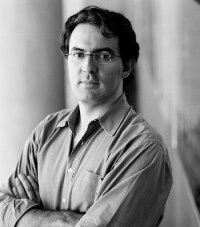 Hoy a partir de las 19:00 horas podrás disfrutar de la presentación de la traducción al inglés del último libro del autor colombiano Juan Gabriel Vásquez. El acto tendrá lugar en el Café Literario.
Hoy a partir de las 19:00 horas podrás disfrutar de la presentación de la traducción al inglés del último libro del autor colombiano Juan Gabriel Vásquez. El acto tendrá lugar en el Café Literario.
Se le considera uno de los mejores novelistas de su generación, y El ruido de las cosas al caer, que aborda el devenir de Colombia durante la época de Pablo Escobar, es hasta la fecha su mejor novela.
Tan pronto conoce a Ricardo Laverde, el joven Antonio Yammara comprende que en el pasado de su nuevo amigo hay un secreto, o quizá varios. Su atracción por la misteriosa vida de Laverde, nacida al hilo de sus encuentros en un billar, se transforma en verdadera obsesión el día en que éste es asesinado.
Convencido de que resolver el enigma de Laverde le señalará un camino en su encrucijada vital, Yammara emprende una investigación que se remonta a los primeros años setenta, cuando una generación de jóvenes idealistas fue testigo del nacimiento de un negocio que acabaría por llevar a Colombia —y al mundo— al borde del abismo.
Juan Gabriel Vásquez (Rosario, Colombia, 1973) estudió derecho en su ciudad natal y más tarde se doctoró en Literatura Latinoamericana en La Sorbona. Actualmente reside en Barcelona. Es autor de tres novelas “oficiales” —Los informantes, Historia secreta de Costaguana y El ruido de las cosas al caer—, aunque escribió otras cuando tenía 23 y 25 años de edad, que él prefiere eliminar. Sus novelas han sido traducidas en Inglaterra, Francia, Holanda, Italia y Polonia.
We are delighted to invite you to the book launch of the translation into English of the last novel written by Colombian writer Juan Gabriel Vásquez. The event will take place today at 7pm at Café Literario.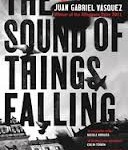
Juan Gabriel Vasquez is one of the leading novelists of his generation, and The Sound of Things Falling that tackles what became of Colombia in the time of Pablo Escobar is his best book to date.
No sooner does he get to know Ricardo Laverde than young Antonio Yammara realises that his new friend has a secret, or rather several secrets. Antonio’s fascination with the life of Laverde begins by casual acquaintance in a billiard hall and grows until the day Ricardo is murdered.
More out of love with life than ever, he starts asking questions until the questions become an obsession that leads him to Laverde’s daughter. His troubled investigation leads all the way back to the early 1960s, marijuana smuggling and a time before the cocaine trade trapped a whole generation of Colombians in a living nightmare of fear and random death.
Juan Gabriel Vásquez (Rosario, Colombia, 1973) studied law in his hometown and obtained a phd in Latin American Literature in the Sorbone University. At present he lives in Barcelona. He has published three “official” novels – The informers, The secret history of Costaguana and The Sound of Things Falling— however he wrote others at the age of 23 and 25 which he prefers to omit. His works have been translated in England, France, Netherlands, Italy and Poland.
Charla y degustación: Cocina mexicana y tequila | Talk and tasting: Mexican Cuisine and Tequila
Esta tarde tenemos un suculento programa doble en colaboración con la Embajada de México en Irlanda. A partir de las 17:30, el Café Literario abre sus puertas con una charla en español a cargo de Claudio Laredo que llevar por título: Cocina mexicana: riqueza, colorido y variedad.
17:30, el Café Literario abre sus puertas con una charla en español a cargo de Claudio Laredo que llevar por título: Cocina mexicana: riqueza, colorido y variedad.
A las 18:30 será José Torres Díaz el encargado de deleitarnos con los secretos de una de las bebidas mexicanas más representativas: el tequila. Esta charla será en español y en inglés.
No solo tendrás la oportunidad de ampliar tus conocimientos teóricos sobre la materia sino que además podrás degustar los exquisitos sabores de México. ¡No te lo puedes perder!
 This evening we have a succulent double programme in cooperation with the Embassy of Mexico in Ireland. Café Literario will open its doors at 5.30pm with a talk in Spanish with Claudio Laredo. The name of this event is Mexican Cuisine: unique variety, colour and richness.
This evening we have a succulent double programme in cooperation with the Embassy of Mexico in Ireland. Café Literario will open its doors at 5.30pm with a talk in Spanish with Claudio Laredo. The name of this event is Mexican Cuisine: unique variety, colour and richness.
At 6.30pm José Torres Díaz will be in charge of a talk about one of the most representative spirits of Mexico: Tequila. This talk will be in Spanish and in English.
Not only will you have the chance of widening your theory but you also will be able to try the delicious tastes of Mexico. You cannot miss it!
Taller bebidas mexicanas: El mezcal | Mexican Spirits Workshop: Mezcal
 Hoy, a partir de las seis de la tarde, podrás participar en un taller sobre las bebidas mexicanas, más concretamente sobre el Mezcal, y su degustación. No olvides hacer tu reserva en reservas.dublin@cervantes.es.
Hoy, a partir de las seis de la tarde, podrás participar en un taller sobre las bebidas mexicanas, más concretamente sobre el Mezcal, y su degustación. No olvides hacer tu reserva en reservas.dublin@cervantes.es.
Desde 1998, la Asociación Pro Cultura Mezcal A.C., investiga, estudia y difunde la cultura del mezcal, un ancestro venerable de la gastronomía mexicana y una de las formas más puras de alcohol que existen en el mundo para el consumo humano.
El propósito de este taller es: cata y formación.
Cata: Mezcal blanco.
Formación: Cómo beber mezcal.
Dicen los expertos que el mezcal es afrodisíaco, una bebida mística, mágica y asombrosa, que si se ingiere con mesura, es una bebida que estimula, que ahuyenta la negatividad, hace crecer la imaginación, hace olvidar los resentimientos, acompaña en la soledad y que ayuda a ver el mundo simplemente como un lugar mejor.
Esta tarde, esperamos poder conocer uno de los secretos mejor guardados de la gastronomía mexicana.
 Do you want to know more about Mezcal, one of the traditional spirits from Mexico? You can participate in a workshop about this drink today at 6pm at Café Literario. Don´t forget to make your reservation: reservas.dublin@cervantes.es
Do you want to know more about Mezcal, one of the traditional spirits from Mexico? You can participate in a workshop about this drink today at 6pm at Café Literario. Don´t forget to make your reservation: reservas.dublin@cervantes.es
Since 1998, The Association for Mezcal Culture, A.C, has been studying, researching and promoting the culture of a venerable ancestor of the Mexican gastronomy, mescal, one of the purest forms of alcohol that exists in the world for human consumption.
The purpose of this workshop is: Tasting and educating.
Tasting: Silver Mezcal
Educating: How to Drink Mezcal
Experts say mezcal is a mystic, magic aphrodisiac and an extraordinary drink. When drunk with measure, it wakes the spirit, tames enmity, stimulates imagination, clears resentments, accompanies solitude, and makes the world seem just… a little better.
We look forward to know better one of the best kept secrets of the Mexican gastronomy.
Audiolibro de la semana | Audiobook of the Week: El balneario
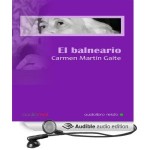 Esta semana te proponemos conocer esta colección de relatos de la gran escritora Carmen Martín Gaite a través del audiolibro El balneario.
Esta semana te proponemos conocer esta colección de relatos de la gran escritora Carmen Martín Gaite a través del audiolibro El balneario.
El balneario es el título de la novela corta que da título a esta colección. Escrita en 1953, la autora consiguió el Premio Café Gijón en 1954. Ya sabes que para descargar el audiolibro solo necesitas tu tarjeta de la biblioteca y hacer click aquí.
Se compone de diez magistrales relatos en los que se predomina una atmósfera onírica y opresiva en la que se mezclan sueños y realidad. El argumento de su historia principal es bastante sencillo. Matilde Gil de Olarreta llega junto a Carlos, probablemente su amante, a un balneario, donde son recibidos por los demás veraneantes de un modo hostil y misterioso.
This week we suggest that you enjoy El balnerario using our audiobook download service. It is a collection of short stories written by the great writer Carmen Martín Gaite.
El balneario is the title of the short novel that provides the title of this book. It was written in 1953 and won the Café Gijón Award in 1954. As you already know, you only need your library card and make click here to download the book.
The book consists of ten brilliant short stories. There is a common oniric atmosphere in most of them, mixing dreams and reality. The plot of the main story is fairly simple. Matilde Gil de Olarreta arrives with Carlos (probably her lover) to a resort where they receive a hostile and mysterious welcome from the other guests.
¡Felicidades Bram Stoker! / Happy birthday Bram Stoker!
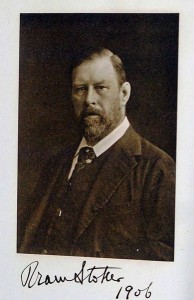 Hoy se cumplen 165 años del nacimiento del escritor irlandés Bram Stoker, este año se cumple también el centenario de su fallecimiento, en abril de 1912. Con este motivo, la ciudad de Dublín, ciudad siempre literaria, se ve colmada de actividades en honor del autor de Drácula. Y claro está, en el Instituto Cervantes no podíamos ser menos. Por ello, el día 28 de noviembre celebramos un homenaje al escritor dublinés que contará con la presencia de Luis Alberto de Cuenca y Alicia Mariño. La charla será moderada por el Dr. Jarlath Killen, profesor de Literatura Victoriana del Trinity College Dublin.
Hoy se cumplen 165 años del nacimiento del escritor irlandés Bram Stoker, este año se cumple también el centenario de su fallecimiento, en abril de 1912. Con este motivo, la ciudad de Dublín, ciudad siempre literaria, se ve colmada de actividades en honor del autor de Drácula. Y claro está, en el Instituto Cervantes no podíamos ser menos. Por ello, el día 28 de noviembre celebramos un homenaje al escritor dublinés que contará con la presencia de Luis Alberto de Cuenca y Alicia Mariño. La charla será moderada por el Dr. Jarlath Killen, profesor de Literatura Victoriana del Trinity College Dublin.
Luis Alberto de Cuenca (Madrid, 1950) escribe lo que él denomina poesía transculturalista en la cual lo trascendente se codea con lo cotidiano y la cultura popular se mezcla con la literaria. Fue director de la Biblioteca Nacional y Secretario de Cultura del gobierno español.
Alicia Mariño es licenciada en Derecho y en Filología Francesa. Ha trabajado sobre el género fantástico en distintos autores y últimamente ha orientado su labor hacia la literatura comparada, estudiando la génesis y evolución de ciertas leyendas europeas.
Instituto Cervantes Dublin is pleased to invite Luis Alberto de Cuenta and Alicia Mariño, who will pay tribute to the Dubliner writer Bram Stoker. The talk will be chaired by Dr. Jarlath Killen, Lecturer in Victorian Literature at Trinity College Dublin.
This year we are conmmemorating the 100th anniversary of Bram Stoker´s death (1847-1912). Therefore, we would like to bring the figure of this Irish mathematician and novel and short story writer closer to you. Although his work was very prolific, he has been idolized and remembered by the creation of one of the most influential horror stories in history: Dracula.
Luis Alberto de Cuenca (Madrid, 1950), one of Spain’s most famous living poets, writes what he calls ‘transculturalist’ poetry in which the transcendental rubs shoulders with the everyday, and literary and popular cultures intermingle. He uses both free verse and traditional metres and his verse is famous for its ironic elegance and its scepticism.
Alicia Mariño has a degree in Law and in French Philology. She has worked on the fantasy genre and recently she has focused on comparative literature, studying the origin and evolution of some European legends.
El presidente Michael D. Higgins en el Instituto Cervantes de Dublín / President Michael D. Higgins in the Instituto Cervantes in Dublin
El presidente de Irlanda, Michael D. Higgins, inauguró oficialmente la primera edición del Festival ISLA de Literatura el pasado 2 de noviembre en el Instituto Cervantes de Dublín. y con ello contribuyó de manera decisiva a su éxito. El festival, por el que pasaron a lo largo del fin de semana cerca de mil asistentes, reunió a escritores de Argentina, Chile, Cuba, México, Irlanda y España en torno a una serie de lecturas, mesas redondas y proyecciones cinematográficas.
El presidente habló ante una sala abarrotada con cerca de 200 personas y les dio la bienvenida en español, irlandés, e inglés. Después de saludar a los asistentes, centró su alocución en los recuerdos de su reciente viaje diplomático por América Latina.
«He regresado recientemente de mi visita a Chile, Brasil y Argentina, una parte del mundo que tiene un lugar especial en mi corazón», dijo Higgins. «Durante este viaje, me llamó la atención una vez más la profundidad del compromiso con la cultura y la literatura irlandesa que existe en América Latina y cómo nuestras dos tradiciones se han influido y enriquecido mutuamente».
Higgins habló después sobre el papel que la escritora Kate O’Brien ha jugado en la literatura irlandesa y española, y la intensa conexión de la autora con España.
El amor del presidente por la poesía también se hizo evidente cuando aplaudió el énfasis que el Festival ISLA de Literatura hizo sobre este género en su programa. «Estoy impresionado por la profundidad y la fuerza de la poesía en este programa. Seamus Heaney, en su magnífica colección de ensayos «The Redress of Poetry», habla de cómo la poesía equilibra «la balanza de la realidad hacia un cierto equilibrio trascendente». El festival ISLA, con sus fuertes elementos interculturales, y los muchos poetas representados en él, como Maighread Medbh y Lorna Shaughnessy, parece tener esa inventiva deliciosa de la que Heaney habla en su obra».
El presidente finalizó leyendo el poema de Oliver St. John Gogarty «An Long» primero en lengua irlandesa y después en inglés.
Información basada en la nota de prensa de Megan Specia y Sergio Angulo.
Michael D. Higgins launched the first Irish, Spanish, and Latin America (ISLA) Literary Festival on the evening of November 2 in the Instituto Cervantes in Dublin. The festival, which brought together writers from Argentina, Chile, Cuba, Mexico, Ireland and Spain, was held over the weekend and featured a series of readings and round table discussions.
The President spoke to a crowd of approximately 200 participants and welcomed them in Spanish, Irish, and English. After greeting the crowd, he spoke to those gathered about a recent diplomatic trip to Latin America.
“I have recently returned from visiting Chile, Brazil, and Argentina, a part of the world which has a cherished place in my heart,” said Higgins. “During these visits, I was struck again by the depth of the engagement with Irish culture and writing that exists in Latin America and how our two traditions have influenced and enriched each other.”
Higgins went on to speak about the role than writer Kate O´Brien has played in Irish and Spanish literature, and the intense connection of the author to Spain.
The President´s love of poetry was also evident when he applauded ISLA´s emphasis on the genre. Said Higgins, “[I am] impressed by the depth and strength of poetic representation in the programme. Seamus Heaney, in his great collection on ´The Redress of Poetry´, speaks of how poetry balances ´the scales of reality towards some transcendent equilibrium´. The ISLA festival, with its strong intercultural elements, and the many poets represented like Maighread Medbh and Lorna Shaughnessy … would seem to have that self-delighting inventiveness of which Heaney speaks.”
He closed by reading Oliver St. John Gogarty´s poem “An Long” (The Ship) first in the Irish language and then in English.
Megan Specia & Sergio Angulo
Concierto de la flautista Elena Durán | Concert of the flute player Elena Durán
La Embajada de México en Irlanda y el Instituto Cervantes de Dublín te invitan hoy a las siete de la tarde a disfrutar de la música de Elena Durán, una de las flautistas más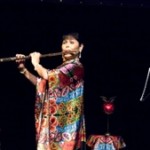 carismáticas en el mundo.
carismáticas en el mundo.
Elena Durán ha ofrecido conciertos y ha grabado discos con muchas de las orquestas más prestigiosas del Reino Unido, Europa y Estados Unidos, así como con prácticamente todas las orquestas importantes de México. Entre sus éxitos, cabe destacar la interpretación de su repertorio junto a la Real Orquesta Filarmónica en sendas galas celebradas en el Royal Albert Hall de Londres ante la reina Isabel II de Inglaterra.
Su actual proyecto, Amorcito Corazón, que presentará en el Instituto Cervantes de Dublín, está dedicado a las creaciones y las películas que musicalizó el gran compositor mexicano Manuel Esperón.
Elena fue recientemente nombrada “Embajadora de la Ciudad de México” en reconocimiento a su excepcional carrera y su trabajo comunitario.
We hope to see you today at 7pm at Cafe Literario where we offer you a concert of Elena Durán, one of the most charismatic flute players in the world today.
She has made concerto appearances and recordings with many major orchestras in the UK, Europe, the United States and with virtually every orchestra in Mexico. Elena has played regularly for members of the British Royal Family, including two Royal Galas with the Royal Philharmonic Orchestra in London’s Royal Albert Hall in front of Her Majesty the Queen.
Her current project, Amorcito Corazón, which she will be presenting at the Cervantes Institute in Dublin, is devoted to the music and the movies of the great Mexican composer Manuel Esperón.
Elena was recently named as “Mexico City’s Ambassador” in recognition of her exceptional career and her out-reach work.
This event has been organized with the cooperation of the Embassy of Mexico in Ireland.
